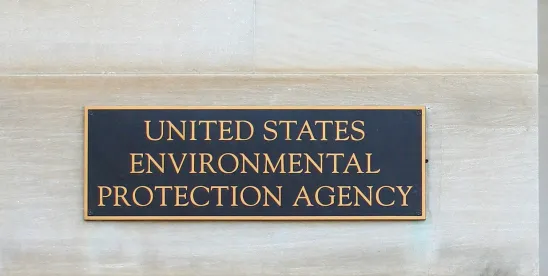On September 30, 2024, Ya-Wei (Jake) Li, Deputy Assistant Administrator for Pesticide Programs at the U.S. Environmental Protection Agency (EPA), announced that he will be leaving EPA to take a position with the U.S. Department of Interior’s (DOI) Fish and Wildlife Service (FWS) as the Assistant Director for Ecological Services. This program is responsible for how the agency conserves endangered species and many other wildlife.
Li was Deputy Assistant Administrator for Pesticide Programs for approximately three years. He was tasked with focusing on issues surrounding the Endangered Species Act (ESA), specifically on how to protect endangered species from pesticides. His appointment reflects the renewed effort by the Biden Administration to achieve the goal of better integrating the work of both EPA and FWS. In August 2024, under Li’s watch, EPA released the final Herbicide Strategy, which incorporates a wide range of stakeholder input, particularly to offer pesticide users many options to reduce pesticide impacts on listed species.
Prior to his work at EPA, Li’s focus was on wildlife conservation. He was the Director for Biodiversity at the Environmental Policy Innovation Center, where he oversaw work to develop better strategies to conserve endangered species, and he was the Director of the Center for Conservation Innovation at Defenders of Wildlife, where he focused on ways to conserve endangered species using the ESA. Li has a background in law and economics, holding a J.D. from Cornell Law School and completing graduate courses in conservation biology and herpetology.
Commentary
The leadership on ESA issues by Mr. Li will be sorely missed. Brought in with the Biden Administration in 2021 to help lead the pesticide program out of the ESA wilderness, his unique understanding, and perhaps most importantly — credibility — with both environmental and pesticide stakeholders, has been essential in steering EPA toward a successful pathway. ESA implementation issues remain formidable for the pesticide program, but progress so far has both stemmed the flow of litigation (at least for now) and outlined programmatic concepts and strategies that “work on paper” to integrate finally the requirements for both pesticide registration and endangered species protection.
Although his absence on these issues at EPA likely will be a new hurdle for successfully implementing the ESA program, at his new position at DOI, he will bring a much improved understanding of, and respect for, the work and dedication of the pesticide program staff and regulatory decisions.




 />i
/>i

